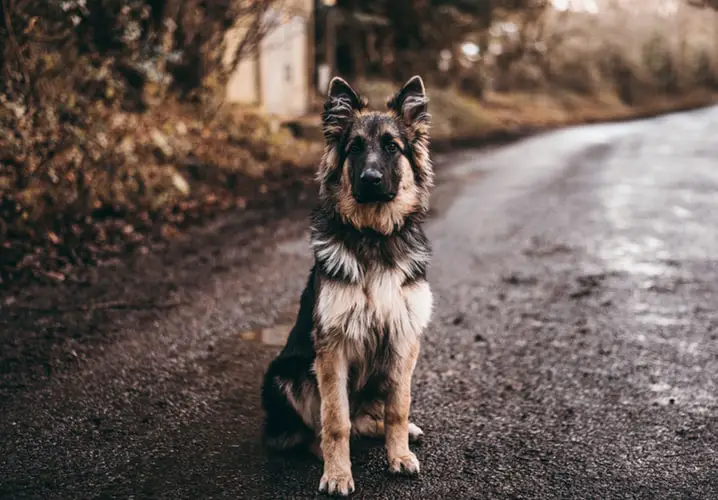One day, a friend of mine, Carla, came up to me and asked for my thoughts on German Shepherd Puppies as he was thinking of adopting one,
I froze
I felt my mind jamming with so many things to say
But none of which came out
I just didn’t know what to tell her to summarize all the aspects of adopting A German shepherd puppy in only a span of a Two-Minute Conversation.
That’s simply not right.
And certainly won’t do this subject matter any justice.
There is a lot to consider here before taking this huge step into the German shepherd world
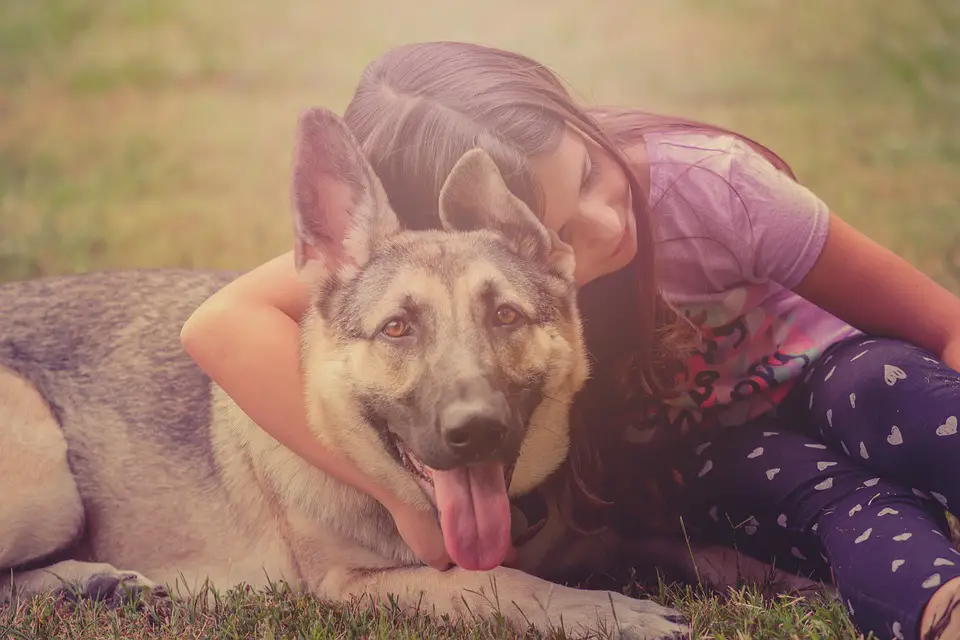
So now after I have thoroughly thought this through,
I did my extensive research
and Here is your answer.
Carla, my friend,
I know you will be reading this,
This post is for you and all German Shepherd Enthusiasts out there
In this article, you will find the Ultimate Guide on German Shepherd Puppies, Here I collected all the valuable information that every aspiring dog parent should know and consider before even thinking about adopting one.
So without any further ado, let’s dive into the German Shepherd puppies world, Shall we?
Table of Contents
All You Need to Know about German Shepherd Puppies
The German Shepherd Dog (GSD) makes a great pet even though it is commonly associated with the military or police. It was originally bred and trained to be a herding dog, hence the name Shepherd.
They are the second most popular dog in the U.S. just behind the Labrador and the third most intelligent.
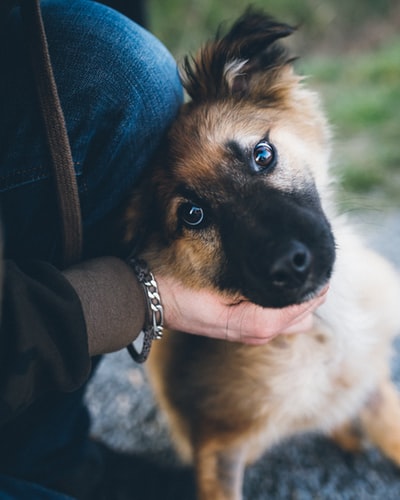
There’s no denying the fact that German shepherds are gorgeous animals.
With Those big brown eyes, that gorgeous fur, and muscular stature, A GSD pretty much looks like a real-life teddy bear, but in the most regal way possible. Add in an amazing personality, and you’ve got what seems like a Dream Dog.
However, There are some things about them you need to know before you take the leap and adopt German shepherd puppies for your family.
Let’s first start with the tough part, The Hands-on Experience of actually living with A German Shepherd. This is the part that every new Dog parent will struggle with.
Bravo,
You guessed it right
I definitely mean,
How To care for German shepherd Puppies?
Once you know your way around this, your ride will be smooth as silk
The answer to this question will be separated into five aspects or parts:
- Nutrition
- Grooming
- Exercise ‘
- Training
- Health Problems
Now for the Nitty-Gritty details
Properly Caring for German Shepherd Puppies
Nutrition
A German Shepherd Dog diet should be formulated for a large-sized breed with high energy and exercise needs.
A high-quality dog food appropriate for the dog’s age (puppy, adult, or senior) will have all the nutrients the breed needs.
Their dietary needs gradually will change as they grow from puppyhood to adulthood and senior age.
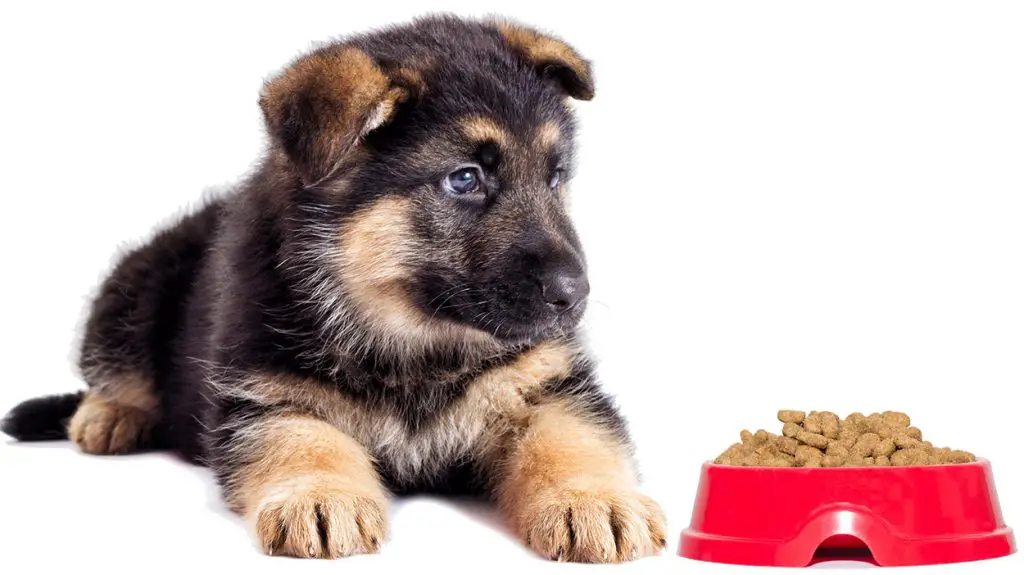
German Shepherds’ growth is usually very rapid between the age of four and seven months, making them susceptible to bone disorders
Preferably, A high-quality, low-calorie diet may keep German shepherd puppies from growing too fast.
Don’t let your German puppy run, jump, or play on hard surfaces like pavement until they’re at least two years old and their joints are fully formed
It’s fine for shepherd puppies to play on grass, though, and puppy agility, with its inch-high jumps, is okay
Table scraps can cause digestive upset, so only give them sparingly, if at all, especially avoiding cooked bones and foods with high-fat content.
Small pieces of biscuit or the dog’s kibble can be used as treats for training. If you are feeding a high-quality food, vitamin and mineral supplements should not be necessary, although adding small quantities of yogurt, cooked vegetables, or eggs to the food can be beneficial.
Keep in mind that Overfeeding your German Shepherd puppies and letting them pack on the pounds may result in joint problems, along with other health conditions.
Limit treats, Keep them active, and Serve them regular meals rather than leaving food available at all times.
Tip.
Try to learn about which human foods are safe for dogs, and which are not. You should consult your veterinarian or professional nutritionist for advice on what to feed your German Shepherd Dog and the correct portion sizes
Grooming
The German Shepherd was originally bred to herd flocks in harsh climates, and their coats fit the job perfectly, acting as protection for the dog from rain and snow and resistant to picking up burrs and dirt
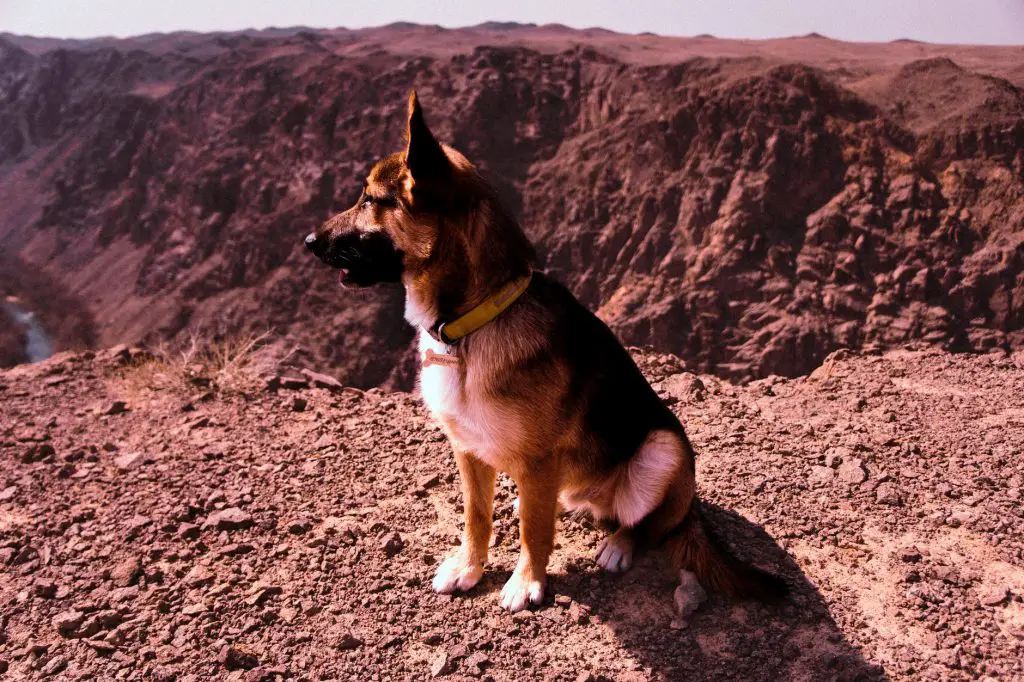
The German Shepherd Dog has a medium-length, double coat consisting of a dense, harsh, and close-lying outer coat with a softer undercoat.
The breed is low maintenance in this particular area, usually requiring just a Quick Brushing every few days or so to help remove loose hairs, but they do shed more profusely once or twice a year.
German shepherds can sometimes be called “German shedders” as they
shed year-round, and generally “blow” shed a lot of hair at once,
like a snowstorm twice a year.
If you desire a GSD, be prepared for hair on your black pants,
your couch, and pretty much all over the house.
There’s no magic solution to shedding, and we just have to accept it. However, brushing two to three times a week will help more of the hair come out in a brush, rather than on your furnishings. And a sturdy vacuum cleaner doesn’t hurt either
For more on How to Get Dog Hair off your Couch, Cloths, and Blankets
Bathing The Dog regularly will end up in striping the coat of oils that keep it healthy, so start running the bathwater only if your dog really needs it. It is not supposed to be that often; Despite their notoriety as a shedder, the German Shepherd tends to be fairly clean and odorless.
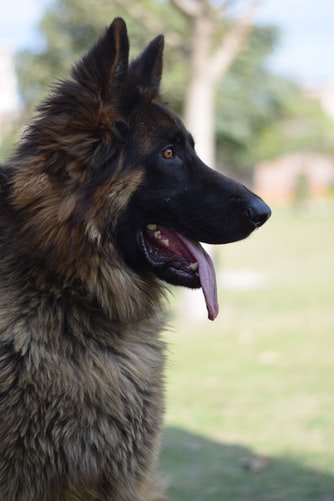
The Nails need to be trimmed once a month, and The Ears checked once a week for dirt, redness, or a bad odor that can indicate an infection. Damp a cotton ball with gentle, pH-balanced ear cleaner an then wipe the ears with it to prevent problems.
German Shepherd puppies love to chew, and this habit helps keep their teeth clean. Give them sturdy, safe dental chew toys or bones, and they’ll be fighting tartar buildup as they gnaw, especially on the back molars.
Brushing Their Teeth with a soft toothbrush and doggy toothpaste also helps keep gums and teeth in good shape.
Exercise
The GSD requires lots of exercise for his physical and mental well-being.
German shepherd puppies who are not exercised enough will become frustrated and likely to develop undesirable behaviors.
With German shepherd puppies, you may start with short daily walks, as well as play sessions in a safely fenced area.

Remember to not let the dog off leash, as even the best-trained dog can become distracted and not follow every command.
Participating in canine activities such as agility, herding, tracking, and dock diving provides excellent physical and mental exercise and is fun and rewarding for both dog and owner.
Training
Early socialization and puppy training classes are vital, and continuing obedience training will help ensure that the pup will grow to be an adaptable and well-mannered adult.
Consistency and positive, reward-based training will yield excellent results.
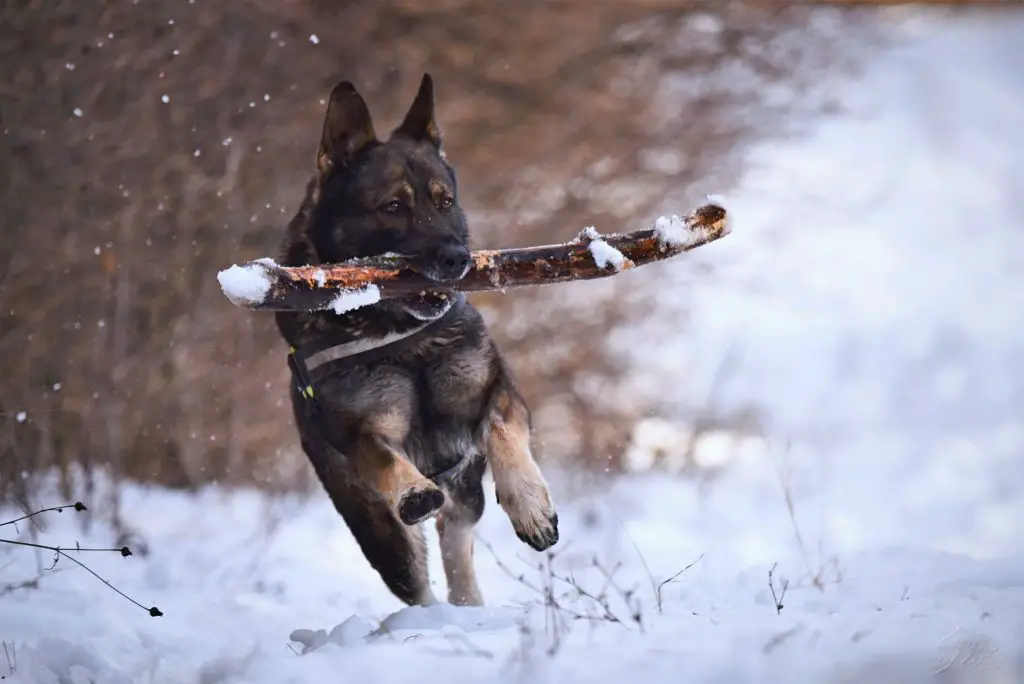
A German shepherd is extremely bonded to his people, so he is happiest when he lives with his family.
It’s preferable for a GSD to be raised in the household and exposed to the family’s activities.
German Shepherd Health Conditions
German shepherds are tough but not invincible
Like all breeds, German Shepherds are prone to certain health conditions.
I’m not saying that all German Shepherds will get any or all of these diseases, but it’s important to be aware of them if you’re considering this breed.
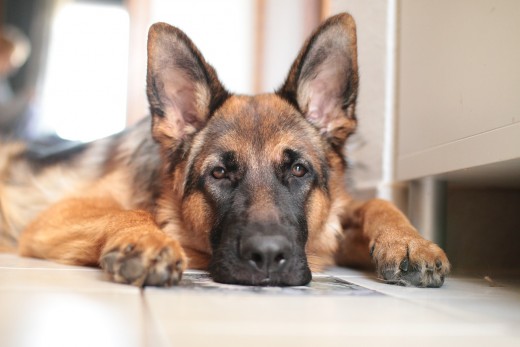
- Hip Dysplasia: Hip dysplasia is a heritable condition in which the femur doesn’t fit snugly into the pelvic socket of the hip joint.
Hip dysplasia may occur with or without clinical signs. One of them is that your shepherd may exhibit pain and lameness on one or both rear legs.
With aging, arthritis can develop.
Dogs with hip dysplasia should not be bred. - Elbow Dysplasia: Many large-breed dogs are susceptible to this heritable condition. It’s thought to be caused by different growth rates of the three bones that make up the dog’s elbow, causing joint laxity.
This can lead to painful lameness.
In case your shepherd has it, Your designated vet may recommend surgery to correct the problem or medication to control the pain. - Gastric Dilatation-Volvulus: Commonly called bloat, this is a life-threatening condition that affects large, deep-chested dogs like Golden Retrievers, especially if they are fed one large meal a day, eat rapidly, drink large volumes of water after eating, and exercise vigorously after eating. Bloat occurs when the stomach is distended with gas or air and then twists. The dog is unable to belch or vomit to get rid the excess air in their stomach, and the normal return of blood to the heart is impeded.
As a result, The blood pressure drops and the dog goes into shock.
Without immediate medical attention, the dog can die.
Whenever your dog has a distended abdomen, is salivating excessively and retching without throwing up, suspect bloat immediately.
They also may be restless, depressed, lethargic, and weak with a rapid heart rate.
It’s important to get your dog to the vet as soon as possible. - Degenerative Myelopathy: Degenerative myelopathy is a progressive disease of the spinal cord, specifically the part of the cord that communicates information to the brain regarding the hind legs.
Dogs with this condition act as though they don’t know where their back legs are, and cannot move them properly.
The disease may result in complications to the point the dog cannot walk. Most of the time, there is no treatment and the dog is put to sleep.
However, in a few rare cases, the condition is related to a lack of vitamin-12 or vitamin E.
If this is the case, vitamin supplements might stabilize the condition. - Exocrine Pancreatic Insufficiency: EPI is a genetic disease of the pancreas in which the cells that produce digestive enzymes are destroyed.
As a result, your dog may not be able to digest and absorb food.
The first signs of the condition are gas, loss of appetite, weight loss, and change in stools.
The dog becomes very thin and very hungry. |
EPI is diagnosed with a simple blood test, and treatment is simple, too: pancreatic enzymes are added to the dog’s food. With proper medication supervision, most dogs recover. - Allergies: Some German Shepherds are known to suffer from a variety of allergies, ranging from contact allergies to food allergies.
Allergy symptoms in dogs are similar to those in people.
If your German Shepherd is scratching, licking at their paws or rubbing their face a great deal, suspect that they have an allergy and have them checked by your vet.
Now,
After you learned how to properly care for German shepherd Puppies,
And yet still want one,
It’s time to get to “second base” with them and know more about this great breed
History of The German Shepherd
In Europe during the 1850s, Several attempts were being made to standardize breeds. Farmers and shepherds employed selective breeding to preserve traits in dogs that would help them in their job of herding sheep and protecting flocks from predators.

In Germany, Shepherds and local farmers managed to categorize different breeds of dogs based on what qualities they have such as intelligence, speed, strength, and keen senses of smell. then they selected mated and bred dogs that possess the skills necessary for herding sheep.
Following the first generation bred dogs, The results were outstanding and exceeded the breeders’ expectations. Making them more eager to develop breeds for different purposes either to be strong hardworking working dogs or just pretty hybrids. Either way, they managed to get what they wanted.
Max von Stephanitz, Former student of the Berlin Veterinary College and
an ex-cavalry captain, Was one of those breeders. He held strong believes that dogs should be bred for working purposes. Not only that but because of his military experiences, he had a vision that dogs can help officers fighting criminals or even soldiers fighting battles alongside humans.
Hektor The Father of German Shepherds

In 1899, during a dog show, Von Stephanitz was shown a dog named Hektor Linksrhein. Hektor was the offspring of a few generations of selective breeding and embodied what Von Stephanitz believed a working dog should be.
Like nothing else max von Stephanitz has seen before. Hektor showed signs of intelligence, loyalty, and beauty, that made von Stephanitz purchase him immediately. He knew that his vision is now achievable because of Hector.
After he purchased the dog he changed his name to Horand von Grafrath. Horand is known to be the first German Shepherd Dog and all German shepherds existing today can be linked back directly to him.
Now after we learned the history of the breed, let’s talk about the dashing looks and physicality of The German shepherd
The German Shepherd at a Glance
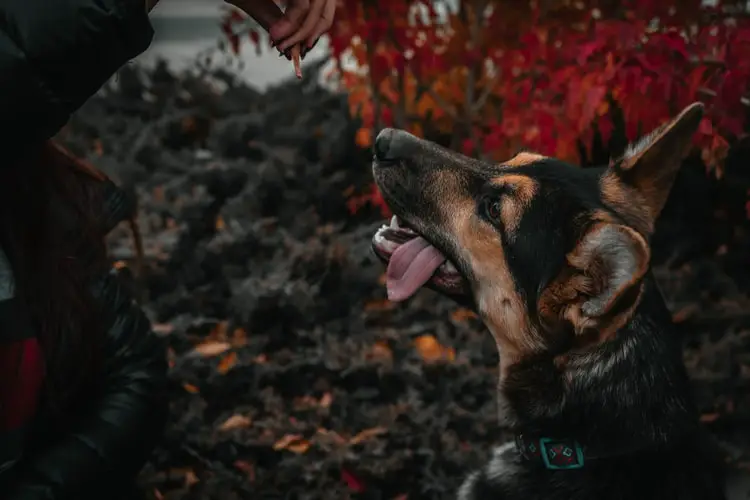
Name: German shepherd (Dah!!)
Other Names: Alsatian wolf dog (UK), Alsatian (UK), Berger Allemand, Deutscher Schäferhund, Schäferhund
Origin: Germany
Size: medium to large
Weight Range: Male: 66-88 pounds (30-40 kg)
Female: 49-71 pounds (22-32 kg)
Height range: Male: 24-26 inches (60-65 cm)
Female: 22-24 inches (55-60 cm)
Colors: Black
Black and Tan
Black & Silver
Black & Red
Life span: 10-13 years
Features: Upright ears (naturally)
Bred For: Herding, Guard dog
Coat: Length: Medium
Characteristics: Double coat
Colors: Most colors, other than white, are permissible
Overall Grooming Needs: Moderate
Expectations: Exercise Requirements: >40 minutes/day
Energy Level: Average
Longevity Range: 10-12 yrs.
The Tendency to Drool: Low Tendency to Snore: Low
The Tendency to Bark: Low
The Tendency to Dig: Low Social/Attention Needs: Moderate
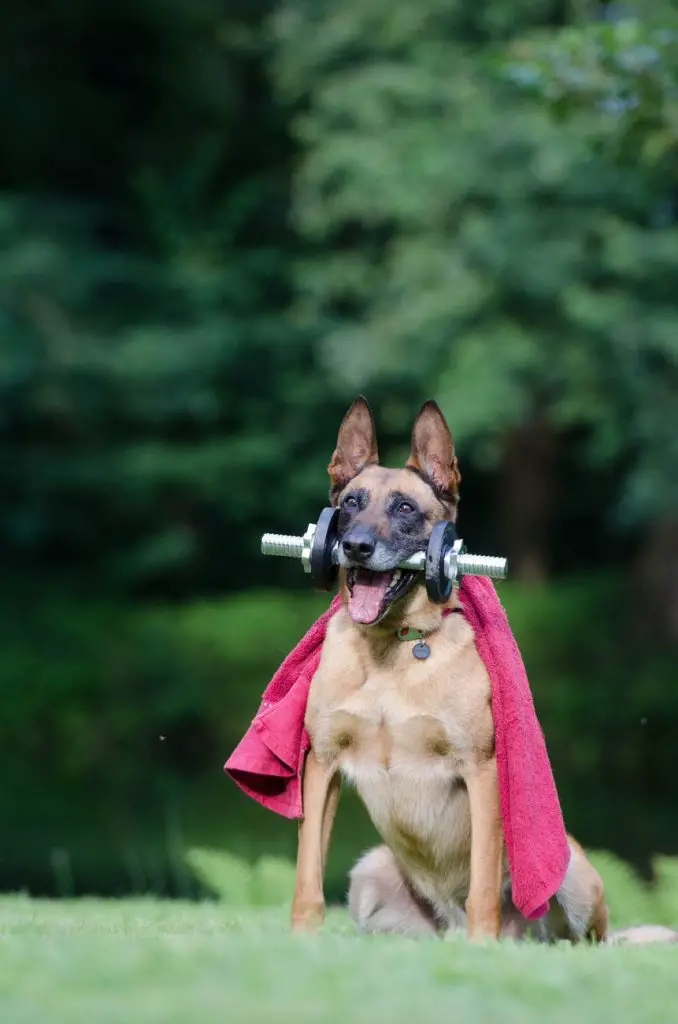
To prevent over-guarding and aggressive behavior, German shepherd dogs should have socialization and obedience training at a young age.
He is a well-proportioned dog with a broadhead that tapers handsomely to a sharp muzzle.
The ears are rather large and stand erect.
The back is full of muscles and level, and the tail has a downward curve and bushy.
The coat is usually harsh and of medium length; However, long-coated individuals occur often.
German Shepherd Traits: Pros and Cons
The Good
- Handsome, natural-looking, athletic
- Thrives on challenging activities and exercise
- Loyal to his own family
- Looks imposing and has a reputation that bad guys don’t want to fool with, so makes an effective deterrent
- A German shepherd possesses the ability to learn almost anything, Plus, He is Highly intelligent and versatile and
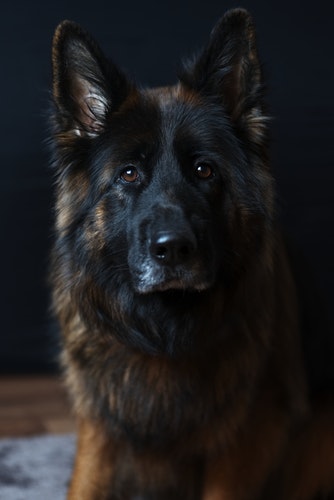
The Bad
- Can be hard to find one with a family-oriented temperament and a decent chance of staying healthy
- Needs plenty of exercise and interesting things to do
- Needs careful socialization
- Destructiveness when bored or not exercised enough
- Potential aggression toward other animals
- Constant shedding – 365 days a year
- Legal liabilities (insurance issues, increased chance of lawsuits)
- High risk of serious health problems
German Shepherd Personality
German shepherds are Cautious when dealing with strangers. This is probably one of the German shepherd personality traits that you’re most likely be familiar with.
You may see a beautiful German Shepherd, you may want to run up and pet it,
But you know better,
as those watchful eyes are questioning and assessing you.
At the same time, you shouldn’t fear him, as the German Shepherd Temperament is not aggressive.
German shepherds are naturally aloof and commonly Reserved in the face of strangers.
The German shepherd is Loyal to absolutely no end, and once he decides you’re to be trusted, will show you a side of his personality that feels entirely like a reward.
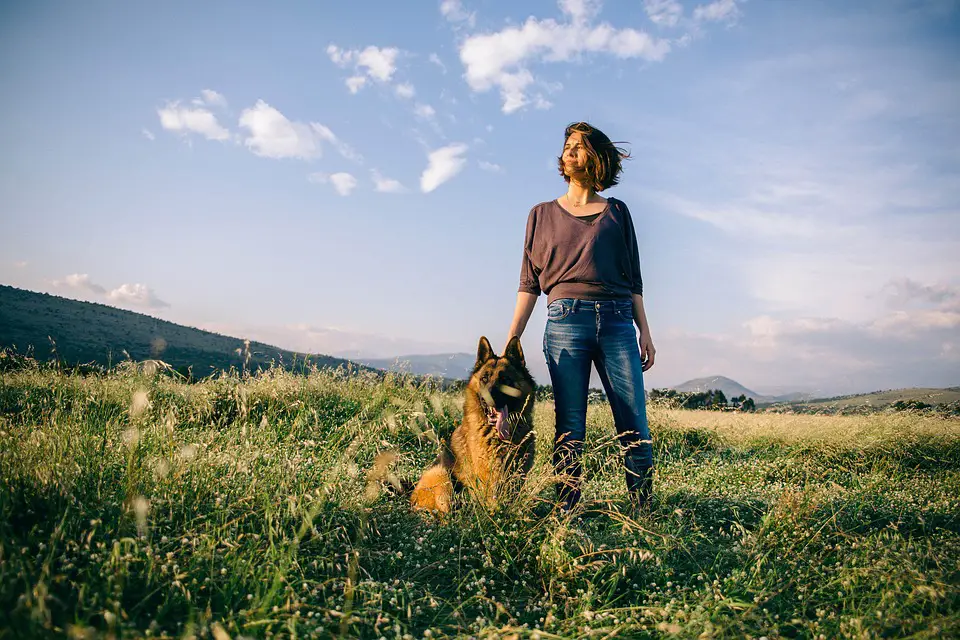
The German shepherd breed is extremely Intelligent and has such an impressive range in what they can be trained to do, that they’re in a working class of their own.
They’re excellent Watchdogs, and you can count on them to protect the children.
The German shepherd is Energetic and in constant need of exercise, immense amounts of stimulation, and to be constantly around those they love
The German shepherd is a Friendly breed, he is comfortably getting along really well with children and other pets if raised with them, but in keeping with his guarding instincts, he tends to be leery of strangers.
In Some cases, when you have a Poorly bred German shepherd,
he tends to be High-Strung and Nervous.
Mix that with poor socialization and inadequate training, over guarding and aggressive behavior
The result is an Aggressive Beast you don’t want to be around
That’s why you have to take good care when trying to purchase a German shepherd and only seek reputable breeders.
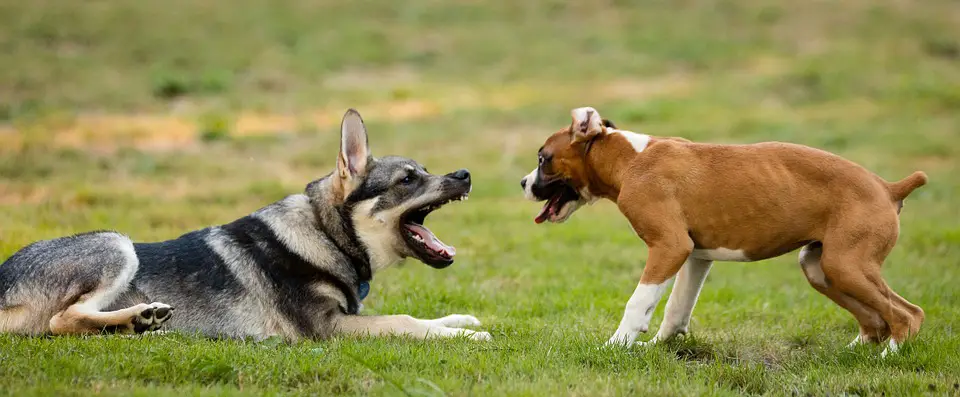
They are Anxious. Separation anxiety Is a huge issue with German Shepherd canines, as they freak out without the presence of their owner.
The German shepherd truly resembles the Alpha Personality: calm, assertive, assured, confident, hyper-intelligent, powerful and athletic, and with the size to make you hesitate.
But on the other hand, at home, the German Shepherd behavior is loving, quiet, calm, and even spunky at times.
German Shepherd Trainability
Easy Training: German Shepherd Dogs are eager pupils and are quick to learn new tricks.
They are the most responsive breed to their owner’s voice.
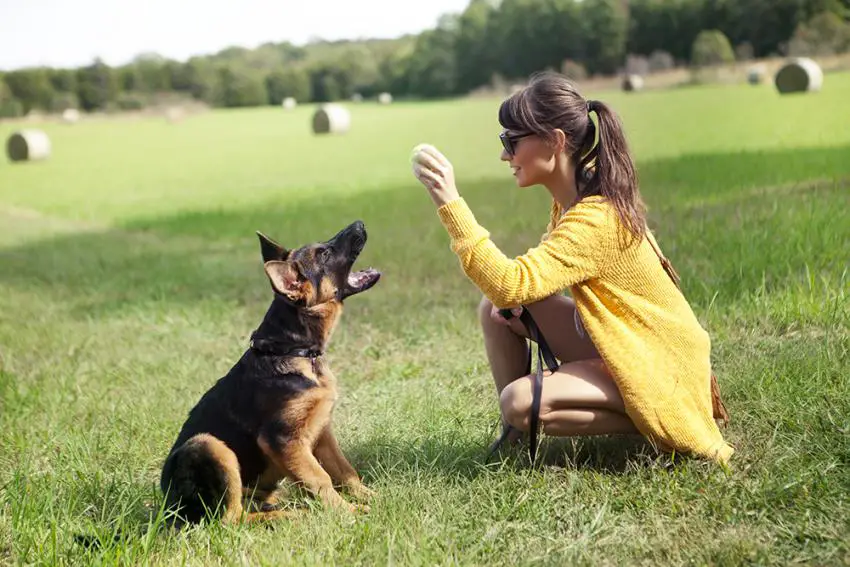
The German Shepherd possesses versatility that makes him suitable for a wide variety of activities including dog sports.
What’s It Like to Live with a German Shepherd
To prevent over guarding and aggressive behavior, German shepherd dogs should be carefully socialized from a young age and be obedience trained.
They should be with the family and continually exposed under supervision to people and other pets around the neighborhood; they should not be confined to a kennel or backyard either alone or with other dogs.
German shepherd puppies are active and like to have something to do. They need ample exercise daily; Otherwise, they can get into mischief or become high-strung.
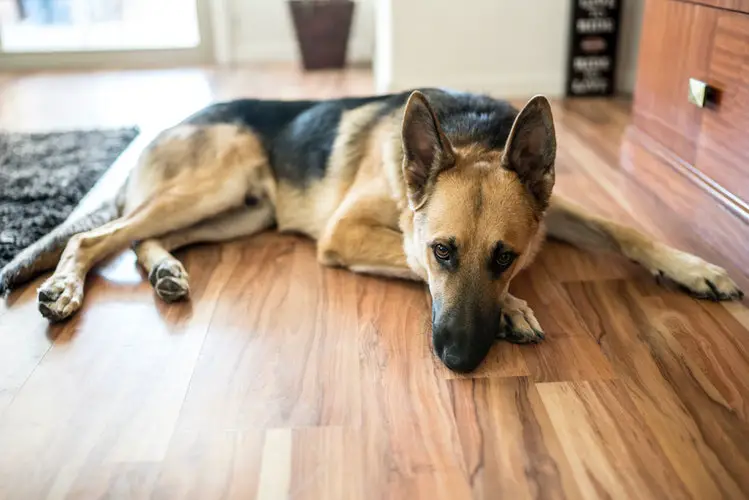
The dog sheds heavily about twice yearly, and the rest of the time sheds a lesser amount continually. To control shedding and keep the coat nice, brush at least a few times a week.
That’s it.
That was our Ultimate Guide on German shepherd puppies, I hope you have enjoyed it
If you liked this post, share it with a friend, he might be wondering about German shepherd puppies too.
Good luck on your soon to be GSD furry son
Remember, Love is the most important part of this equation, let your puppy feel your love
Love is the answer to all Problems. Love yourself and love all the living things around you
What did you think about this article?
Whatever you think, comment below and let me know!
If you liked what you read here and want to read more check out my other articles like 8 Fun Dog Training Games to Play with Your Pup or 10 Tips to Calm a Dog During Fireworks
If you have any questions or further tips regarding German shepherds that I might have missed, Feel free to tell us in the comment section, We are all here to learn for the sake of our beloved furry friends
Have a nice day and Read you next time.

